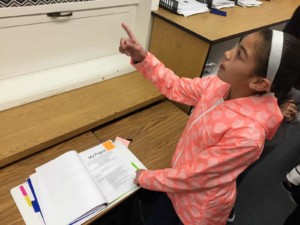Scrap credits/time as measures of progress
It’s time to scrap credit accumulation and seat time as the measures of student progress. Seat time requirements are the enemy of performance-based education. We’ve been spouting the mantra ‘vary time not learning’ for a generation but have seldom broken the mold. It’s great to see ED and CCSSO (and even the FCC) talking about performance-based education.
Credit accumulation has been the standard matriculation measure for generations and it is locked into place by state graduation requirements. NCLB made the situation worse by requiring grade level testing and by adopting a criterion referenced approach (i.e., kids at grade level) rather than a growth model. ED has been slowing approving growth models but we’ve lost 8 years of potential progress. A combined approach that measures how much do kids know by age and how fast are they learning should be incorporated into next ESEA.
Online learning, targeted tutoring, alternative education, and independent study are the four small but growing wedges forcing us to reconsider student progress.
- Online learning allows students to vary rate and time easily accommodating rapid progress on one subject and slower progress in another.
- Students in AdvancePath academies and Performance Learning Centers regularly accumulate credits at 1.5-2 times the traditional rate. They do it just by concentrating time on task. With adaptive curriculum (personalized by level and modality) models like these will become even more productive.
- Quality targeted tutoring allows struggling students to achieve like top performers. Kumon and Sylvan have millions of success stories to prove it.
- Independent study options allow students to take non-traditional routes to develop competency.
Common Core is a great opportunity accelerate individual progress options like these by adopting merit badge diplomas that are more specific to target knowledge, skills, and abilities. A merit badge approach would open the door to a variety of approaches and pedagogies. Rather than requiring 24 course credits for high school graduation, a state could (at least as an alternative) require 100 performance demonstrations. Merit badges would also lend themselves to combinations of online adaptive and performance assessment (i.e., lots of online assessments plus opportunities for students to show what they know).
There is a risk that the Common Core and shared end of course exams will lock in Carnegie units and bubble tests as the standard for matriculation for another generation. The feds can encourage the $350m set aside for assessment be used to develop adaptive online assessments and performance assessments–both of which could be taken anytime. NAEP could remain the common dipstick by age cohort.






0 Comments
Leave a Comment
Your email address will not be published. All fields are required.